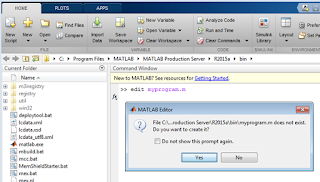About Me:
My name is Shameer A. Koya. I am now working as Lecturer in Department of Electrical Power Engineering, Yanbu Industrial College, Royal Commission for Jubail and Yanbu, KSA. I have more than 12 years experience in university level teaching. I am member of the International Association of Engineers (IAENG); membership number is: 159725.I completed my Masters Degree in Electrical Engineering with specialization in Power System from Kerala University, India. Immediately after my graduation I worked as lecturer in A W H Engineering College, Kerala, India. After working there for five years, moved to the current job.
I have published papers in national and international conferences. My areas of interest are Power Quality, Active Power Filter and Fuzzy Logic.
About the Site:
The site was launched in December 2015. The site is intended to share my knowledge in the Electrical Engineering field, to help electrical engineering students and professional. The site will contain various topics in Electrical engineering. .......
My Publications:
- Shameer A Koya, " Fuzzy Control of DC Motor Drive", Proceedings of International Conference on New Frontiers in Science, Engineering and Technology, ICNFSET'15, AWH Engineering College, Kerla, India, 8-9, October, 2015.
- Manickavasagan, A., A. Arunagiri, A. Shameer, G. Thomas. " Fuzzy logic approach in assigning grades from multiple quality parameters: A case study with dates", CSBE/SCGAB 2015 Annual Conference, Edmonton, AB, 5-8 July 2015.
- Shameer A Koya U, Mustajab Ahmed Khan, “K-Rated Transformers and Active Power Filter for Harmonic Conditioning in Industrial and Commercial Applications”, Proceedings of IEEE GCC Conference 2011, Dubai, 19-22 February 2011, pp 645 – 648.
- Shameer A Koya U, Lathika B S, “Active Power Filter using ANN and Fuzzy Control”, Proceedings of Eighth IASTED International Conference Power and Energy Systems (PES 2005), Marina Del Ray, USA, 24-26 October 2005, pp 49-54.
- Shameer A Koya U, Lathika B S, “Fuzzy Control of ANN Based Active Power Filter”, 6th National Conference on Technological Trends, CET, TVM, 25-26 November 2005.
Why I Teach:
I find teaching to be a personally rewarding experience. There are many reasons I could give to explain why I find teaching rewarding. I could talk about making a difference in student lives, of helping to develop their skills and of sharing my knowledge with them. Or I could talk about the feeling of satisfaction it brings me to see the joy in their faces the moment the "light" turns on when a student finally grasps a difficult concept.Teaching is an integral part of who I am and what I want to do.I believe in encouraging my students to think critically and independently, not to simply accept what I tell them, but instead to be active participants in class, asking questions and taking part in group and class discussions. My laboratory exercises, homework assignments and project work are designed to help foster independent learning, understanding, and critical thinking.
I recognize that every student is an individual and that each individual learns in different ways.I believe that it is important for students to understand both what they are expected to learn and why the topics I present should matter to them.I endeavor to be clear to my students about the grading criteria for course work, ensuring that grading is not only done fairly, but also appears equitable to the students.I closely follow student performance throughout the academic term to discover potential trouble spots early. I encourage students to come to me if they are having difficulty.
I strive to become a better teacher and improve the general quality of undergraduate education. I talk with my students and read their evaluations carefully to gain insights into my strengths and weaknesses. But student evaluations tell only part of the story; my success can also be read in my students' academic achievements and in their enthusiasm throughout the term.
Every class I teach is an experiment that allows me to refine my teaching methodology. I try new approaches inspired by conversations with colleagues, studying about teaching techniques and by listening to my students.









0 comments:
Post a Comment